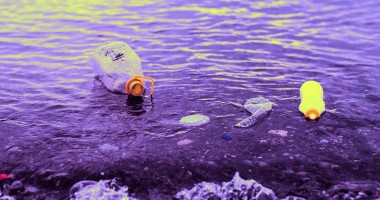Scientists Find Plastic-Eating Fungus Feasting on Great Pacific Garbage Patch ( futurism.com )
cross-posted from: https://lemmy.ml/post/16488358
Scientists Find Plastic-Eating Fungus Feasting on Great Pacific Garbage Patch

cross-posted from: https://lemmy.ml/post/16488358
Scientists Find Plastic-Eating Fungus Feasting on Great Pacific Garbage Patch
